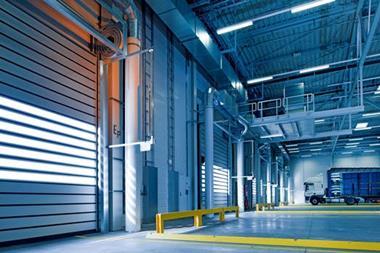EUROPE - Tenants will not embrace green benchmarking until they can make an economic case for it - or regulators force property owners to act, a panel heard Thursday.
Ian Smith, head of project management for global corporate services at CB Richard Ellis, told the Sustainability Now online conference that tenants were frustrated by the fact they had little decision-making power about the buildings they occupy.
"Interest in sustainability has peaked and troughed with occupiers over the years," he said. "Now that it's firmly on the agenda, they have little say in it - and landlords won't do anything unless it is forced upon them by legislation."
The absence of agreement on a single sustainability metric had encouraged some occupants to develop their own internal benchmarks - but that was only an option for the largest.
"Occupiers are frustrated with the fact there is no global standard system - and that the systems there have all been set up with commercial interests behind them," said Smith. "It's all rather woolly, so no benchmarking really takes place."
Simon Sturgis, managing director of Sturgis Carbon Profiling, suggested that existing standards in any case only measured the cost of construction when they should be looking at a whole-life carbon costing, including refurbishment.
"Legislation will move in that direction, and it makes sense because it gives you a long-term view of the building and synchronises value with lease cycles," he said.
"If you look at how much it costs to create a sustainable building, it can look like Greek debt - in some cases, you'll never be able to recoup the energy expenditure. But carbon cost per square foot can be swiftly translated to monetary value."
The panellists agreed boardroom buy-in for sustainability metrics would be driven by the need to reduce costs and manage risks.
But Smith pointed out that US standard LEED had sometimes "been brought into disrepute" because of the prohibitive cost of altering even good-quality buildings to make them compliant.
He argued that, in future, LEED would need to incorporate ongoing management and post-occupancy costs.
"LEED has the market and should take a lead - if you'll forgive the pun," said Smith.
Yet panel chair Ruth Standring, head of health, safety and environment at Standard Chartered, questioned whether a benchmark designed for mature markets made sense outside the US and China - LEED's main markets.
"LEED gives you points for doing things that are bad for some local economies, such as using bio-fuels," she said. "There's a bigger world than the US."












